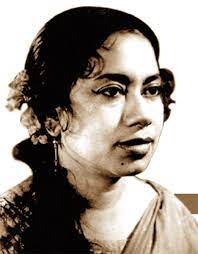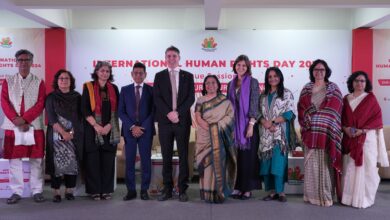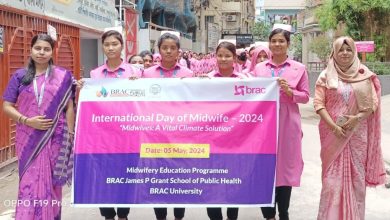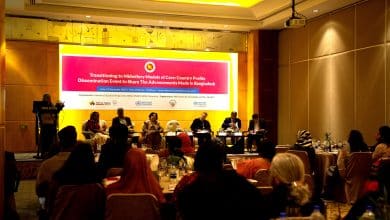Respect to martyred journalist Selina Parveen

Parvez Babul
With a great sense of my unfathomable respect to the martyred lady journalist Selina Parveen I offer my salute. She was imbued with matchless and unrivalled bravery, which enabled her to think like an idealist. As a visionary she dreamt of an independent Bangladesh for all of us and fought for that with her pen by writing in the newspapers. When an individual can meet head-on her or his fears, she confronts them and wins.
We know that pen is mightier than the sword or bullet. Patriotism found expression through her mighty pen. That is why the beastly occupation army of Pakistan and their local collaborators became angry and brutally killed her as well as other significant personalities of Bangladesh in December 14, 1971, only before two days of our historical victory day!
Pursuant to the Wikipedia: Selina Parveen was born in Feni, the then Noakhali district in March 31, 1931. As a journalist she used to work for “Weekly Begum”, “Weekly Lolona”, edited and published “Shilalipi”.
Her father Md Abidur Rahman was a teacher. After the World War II her father’s house was seized at Feni town and their family had to settle in village. Then 12 years old Selina Parveen was a student of class six and practiced writing poetry and stories. Due to the traditional conservative rural context she had to put an end to her schooling. Selina Parveen came to Dhaka in 1958 at the age of 27 and got the job of matron of Rokeya Hall at Dhaka University. As a result of dispute with the authority she quit the job.
She got married with a politician. She used to work with various periodicals and publish her own periodical Shilalipi on an irregular basis.
In December 13, 1971 she was kidnapped by the members of paramilitary force Al-Badr. She was brutally killed on December 14 and her dead body was later discovered in the Rayerbazar Boddhobhumy. Shumon Zahid, only the son of martyred journalist Selina Parveen was eight years old in 1971.
Recently I met him and listened to his mournful words about the brutal killing of his mother. I observed that while he talked to me, his eyes were curious to see his mother and his mind was full of memories of her. Many memories are still unspoken.
Shumon narrated the painful fact of brutality of the armies of Pakistan and Al-Badr of the East Pakistan; how they picked up his mother tactfully from their residence at Siddheshwari, Dhaka in the noon before taking lunch with his mother in December 13, 1971.
Selina Parveen was cooking food for lunch. At that time Pakistan army and some of their collaborators entered in her house. They asked her to go with them. She questioned, “Where?” ‘To secretariat’, they told a lie to her, “We will drop you back very soon”, they added.
Shumon was trying to follow his mother, but they prevented him from going with her. After getting out of home, they covered the eyes of Selina Parveen with her towel. Shumon passed four days with deep anxiety for this mother, but he did not get her alive! On December 18,1971, people discovered the dead body of his mother at Rayer Bazaar boddyobhumi, Dhaka. It was really a matter of unbearable shock and sorrow for him and their relatives.
A survivor from the Pakistan army shared the scene of brutal killing of his mother. That person informed Shumon that the hated killers killed his mother charging bayonet in her chest and with gun shots. Shumon’s eyes became filled with tears. He took a pause. After a while he said, “My sorrows become double when I see that the enemies of our independence and the killers of my mother as well as other intellectuals, are still not yet tried and punished. My mother used to edit and publish a Bangla newspaper entitled “Shilalipi” since 1969. The prominent journalists and writers wrote columns in the newspapers supporting the independence of Bangladesh.
In addition, my mother supported the war of independence, gave the freedom fighters shelter at our house, supplied them food, offered medicine and treatment to the wounded freedom fighters. The then Pakistan government disliked those and became angry with my mother. The killers included my mother on their list of killing as their enemy and they fulfilled their nasty plan by killing my mother and other intellectuals of Bangladesh”, Shumon added.
Shumon applied to the Dhaka City Corporation and knocked for long nine years to name a road after his mother. Accordingly, the Siddheshwori road has been named: Martyr Journalist Selina Parveen road.
Though Shumon struggled a lot to survive after losing his mother forever, and still he struggles to run his family with a little income from a simple job; but he does not have any demand to any one for his personal gain. He requested the government to set up a mural with her portrait of his mother containing full information about her. It will help the new generation to know about the supreme sacrifice of his mother for our country Bangladesh.
“There is no end of my sorrows, but if I see that the war criminals are tried, killers of my mother are punished, the soul of my mother will rest in peace”, Shumon expected.
I think the nation must support him; because, we believe in the spirit of our Liberation war.
Note: This write up was published in the “Selina Parveen swarok grontho in 2012.” Shumon Zahid’s interview was taken in 2011 when he was alive. According to the newspaper reports, Shumon Zahid, also a war crimes witness, found dead with throat slit in Khilgaon, Dhaka on June 13, 2018. I pay tribute to him.





